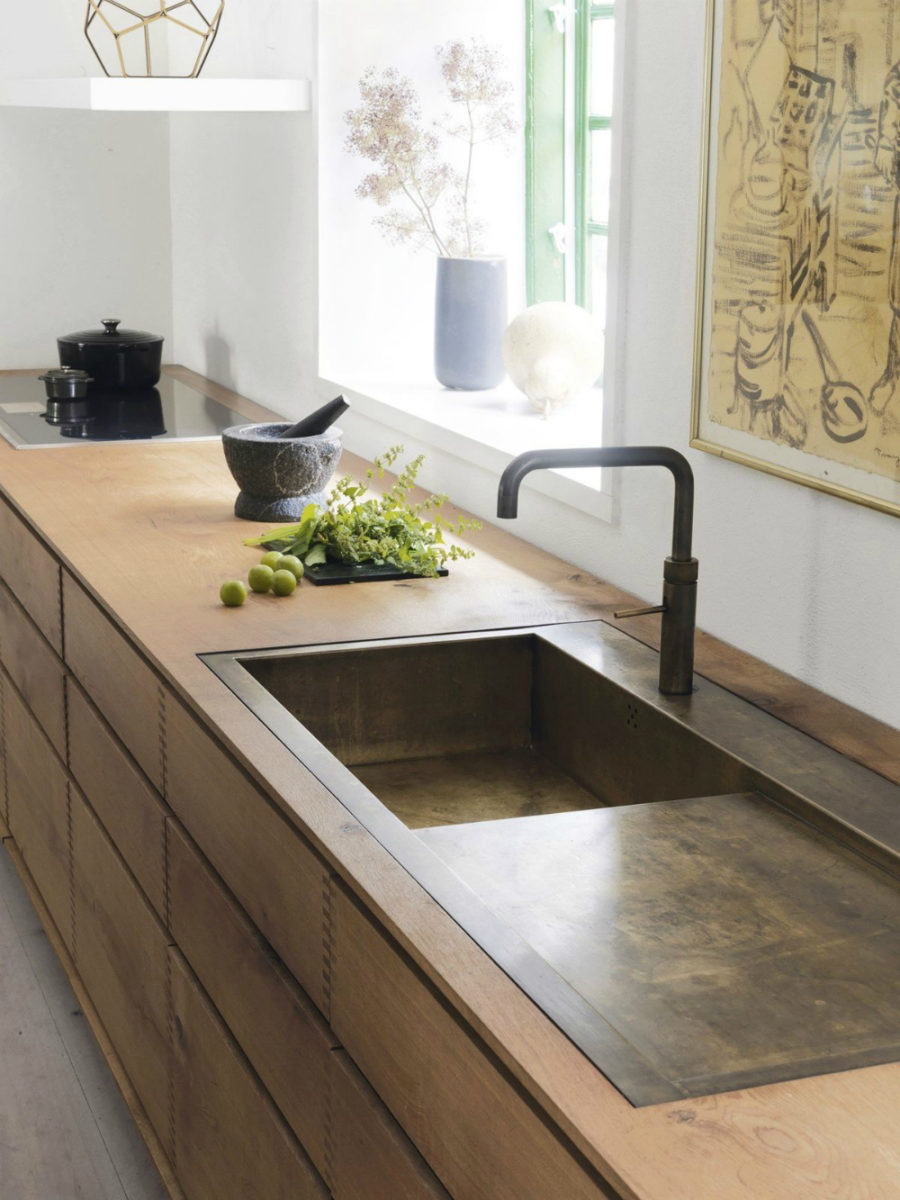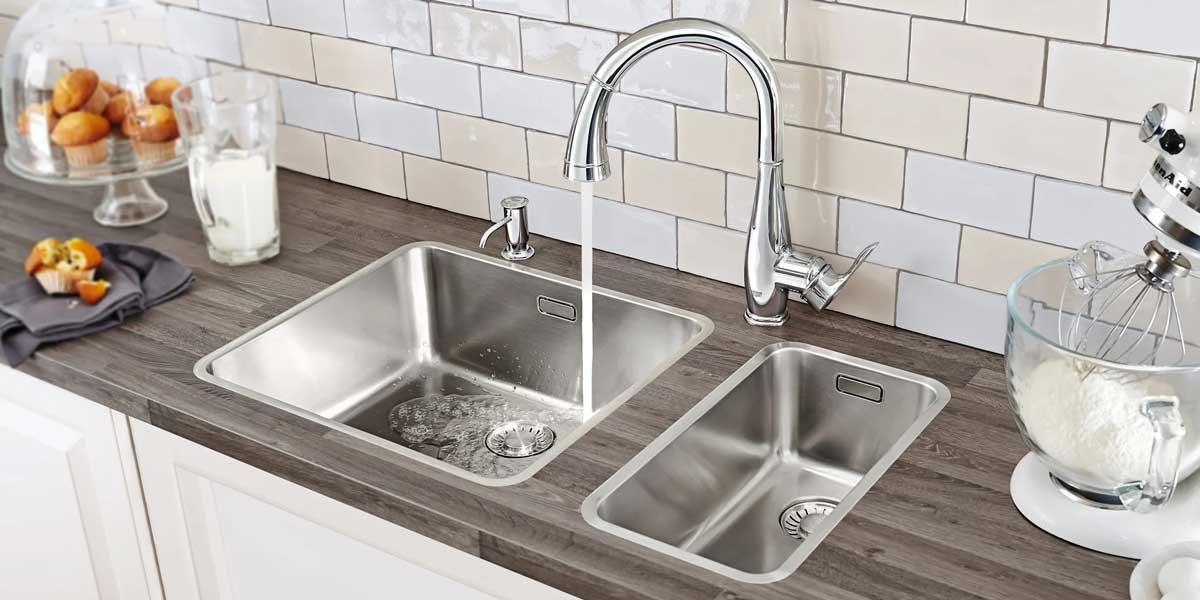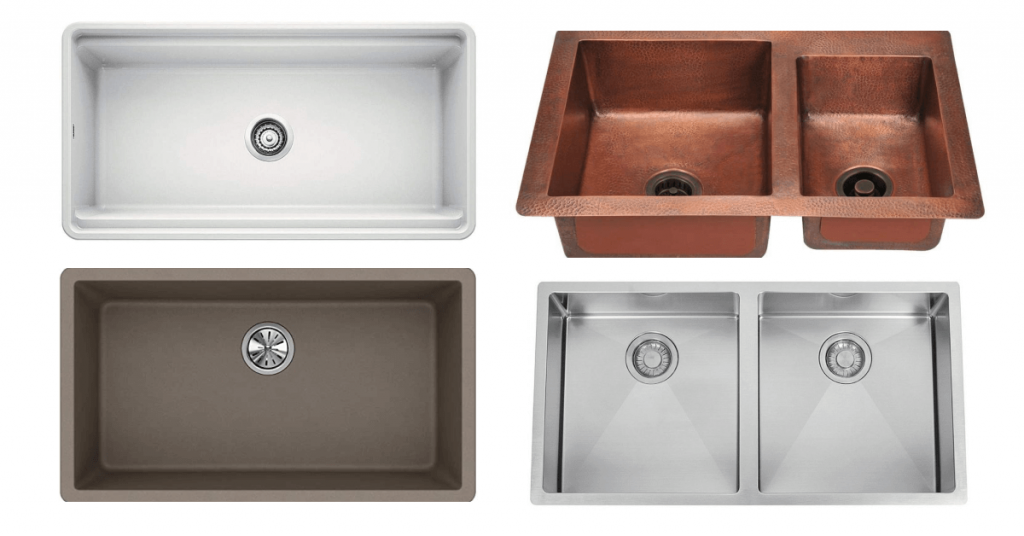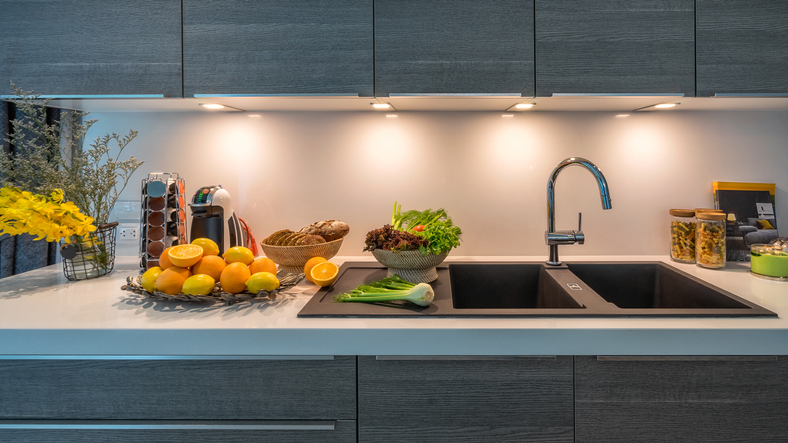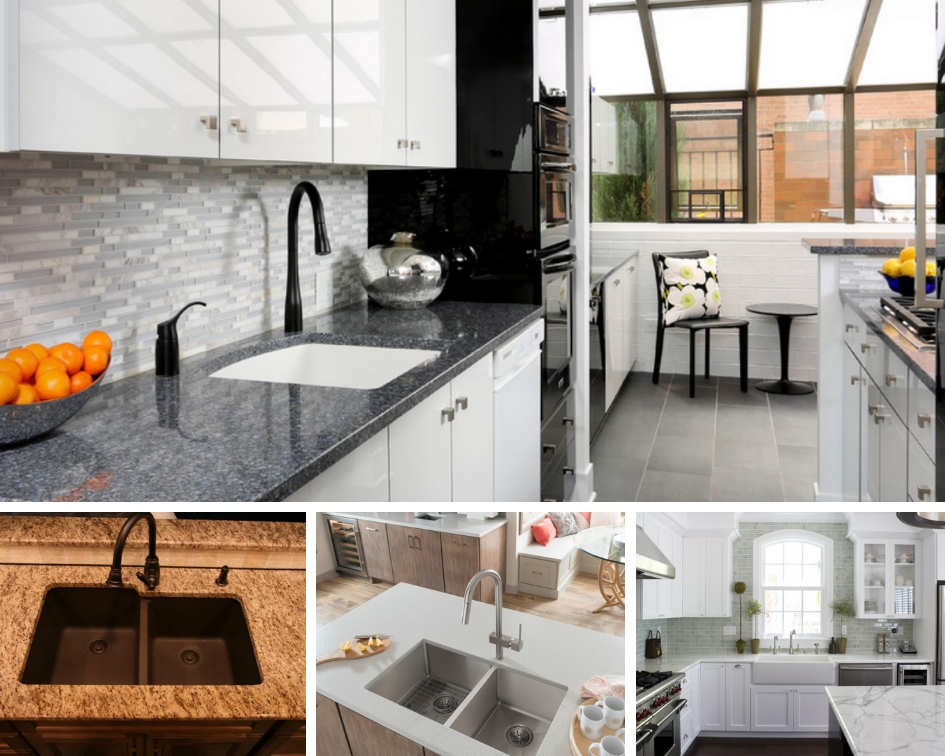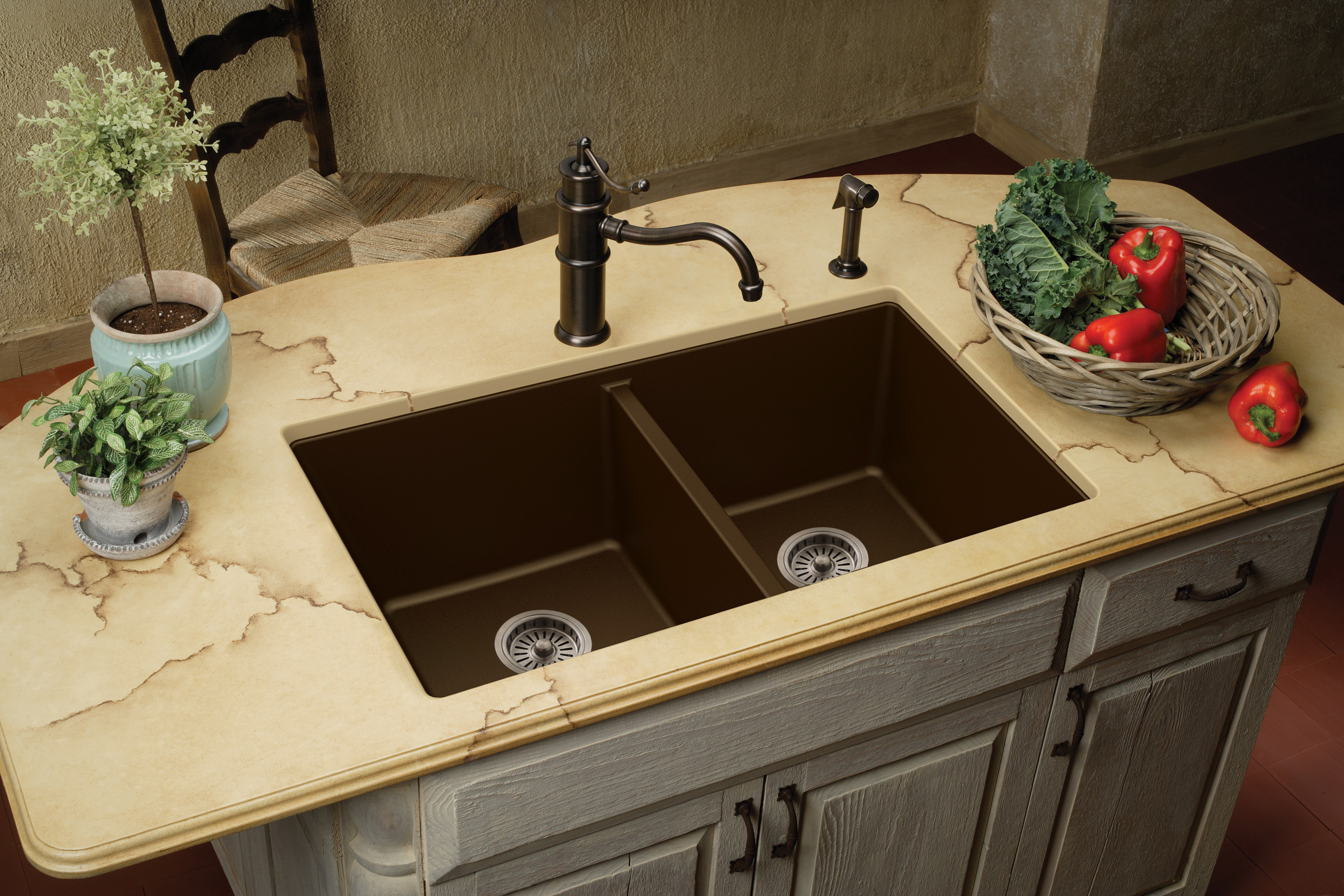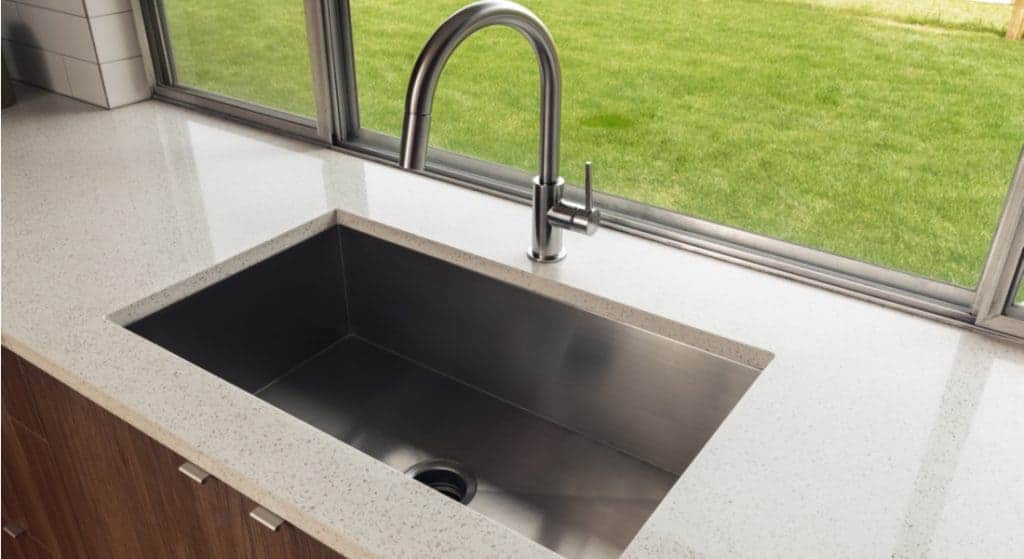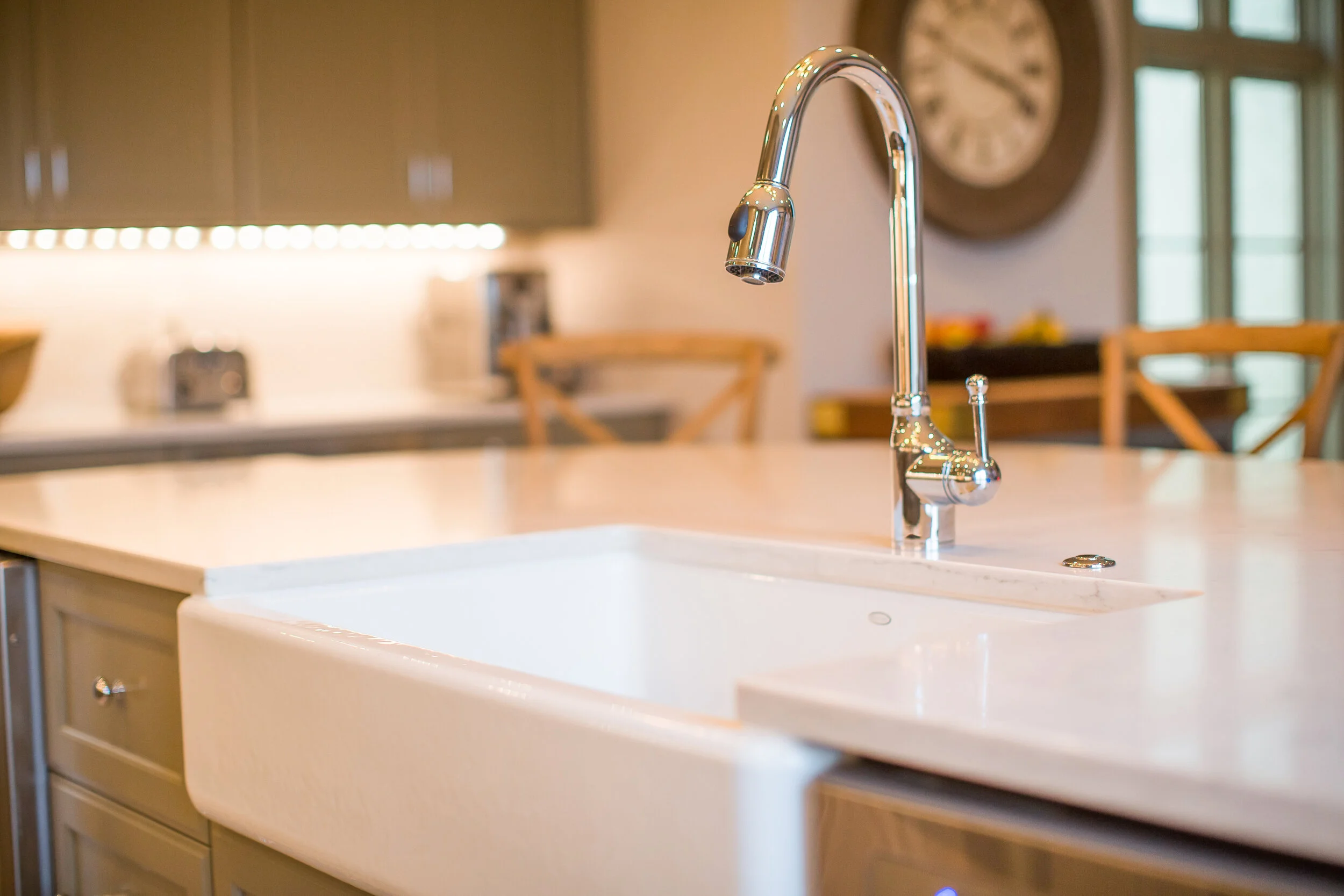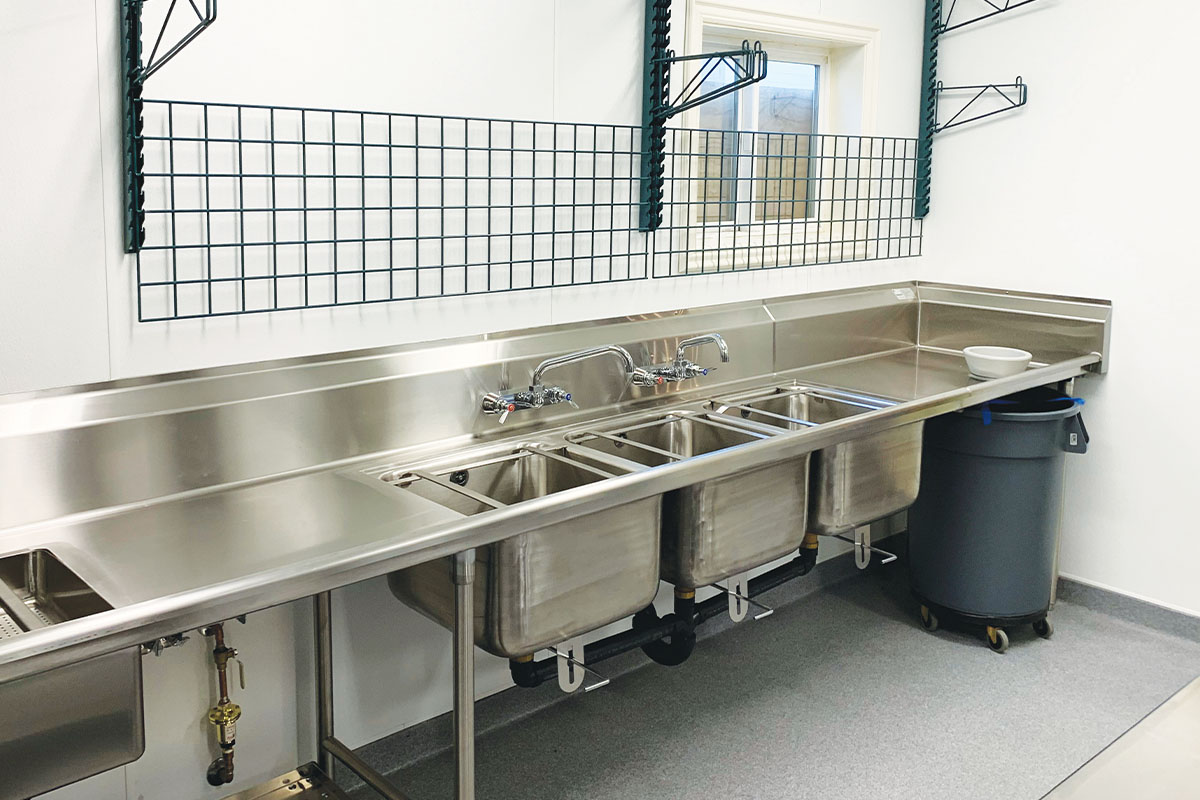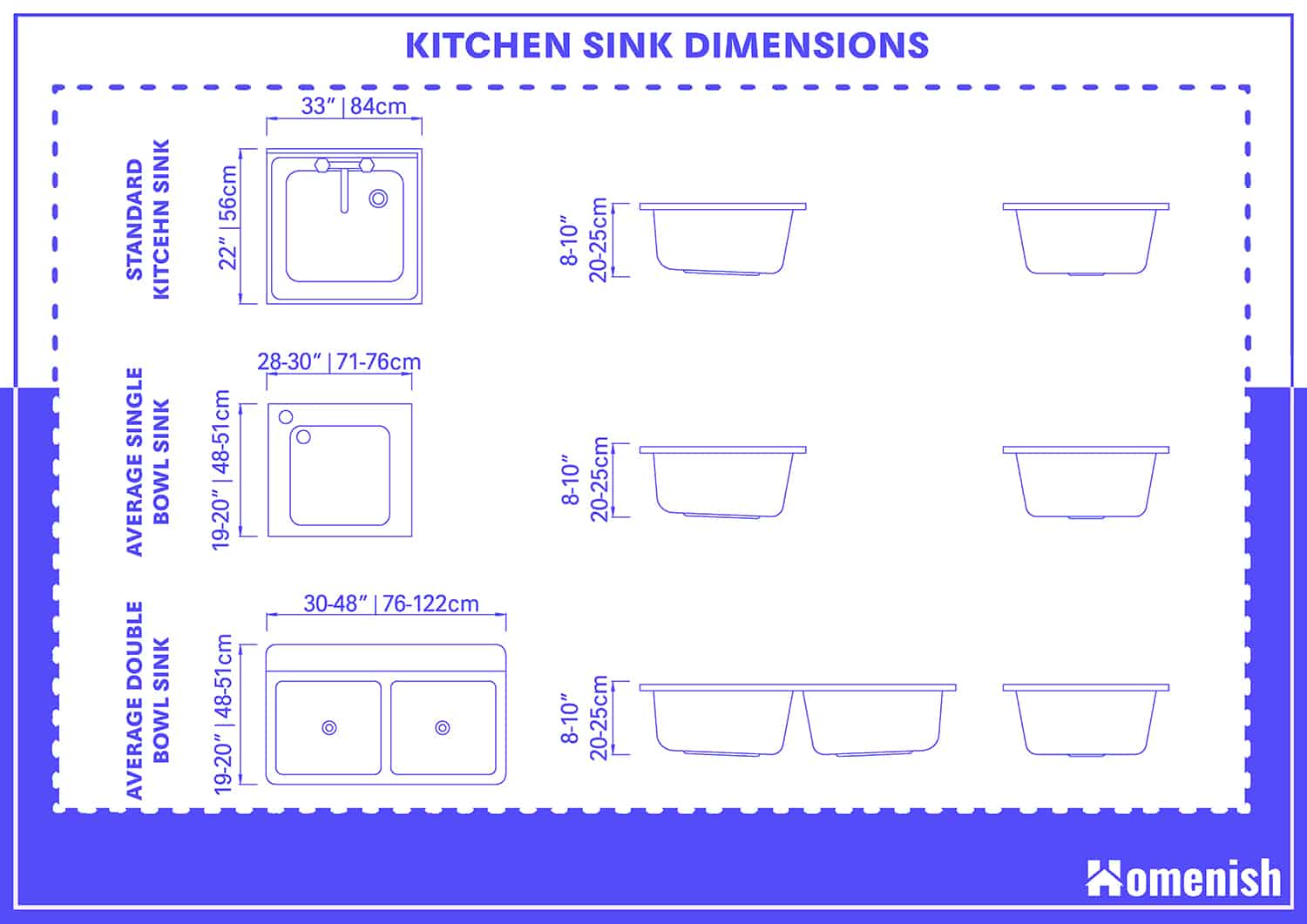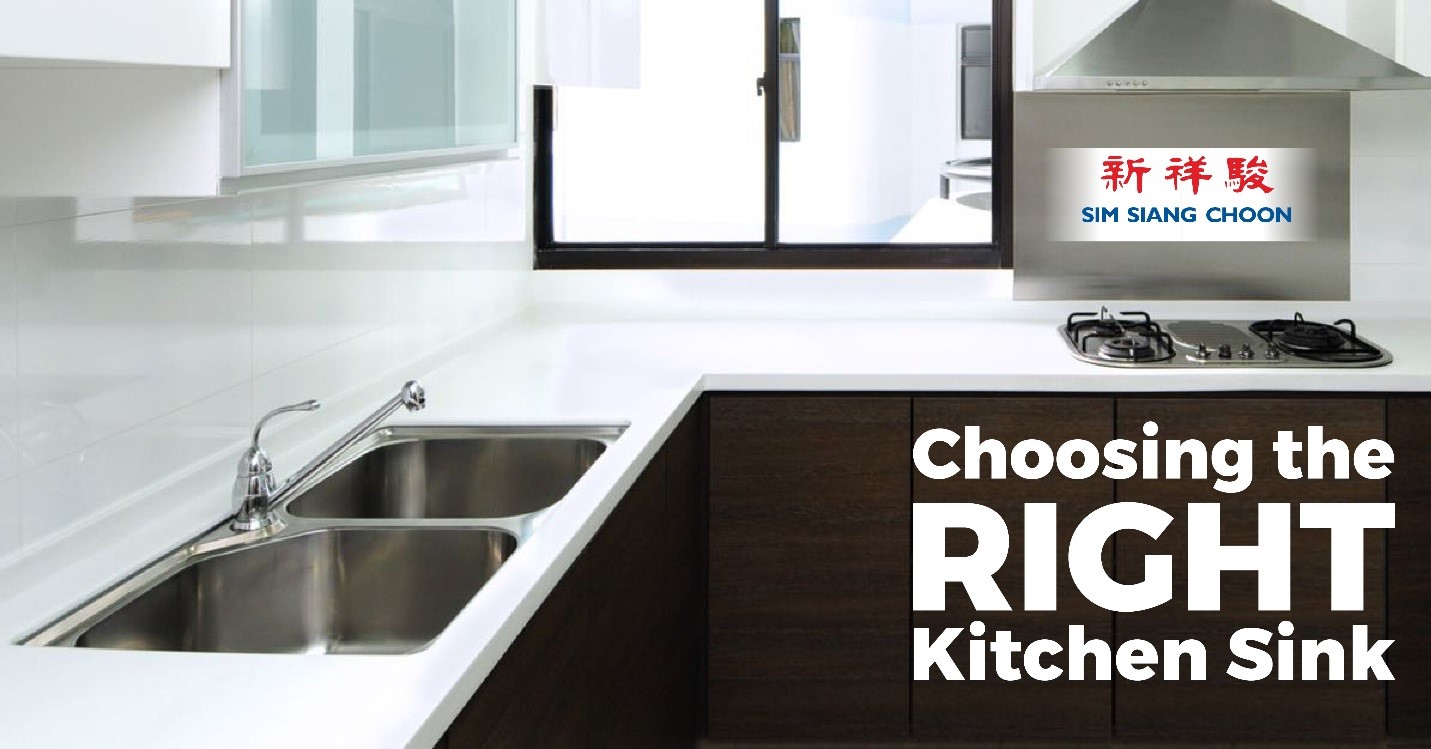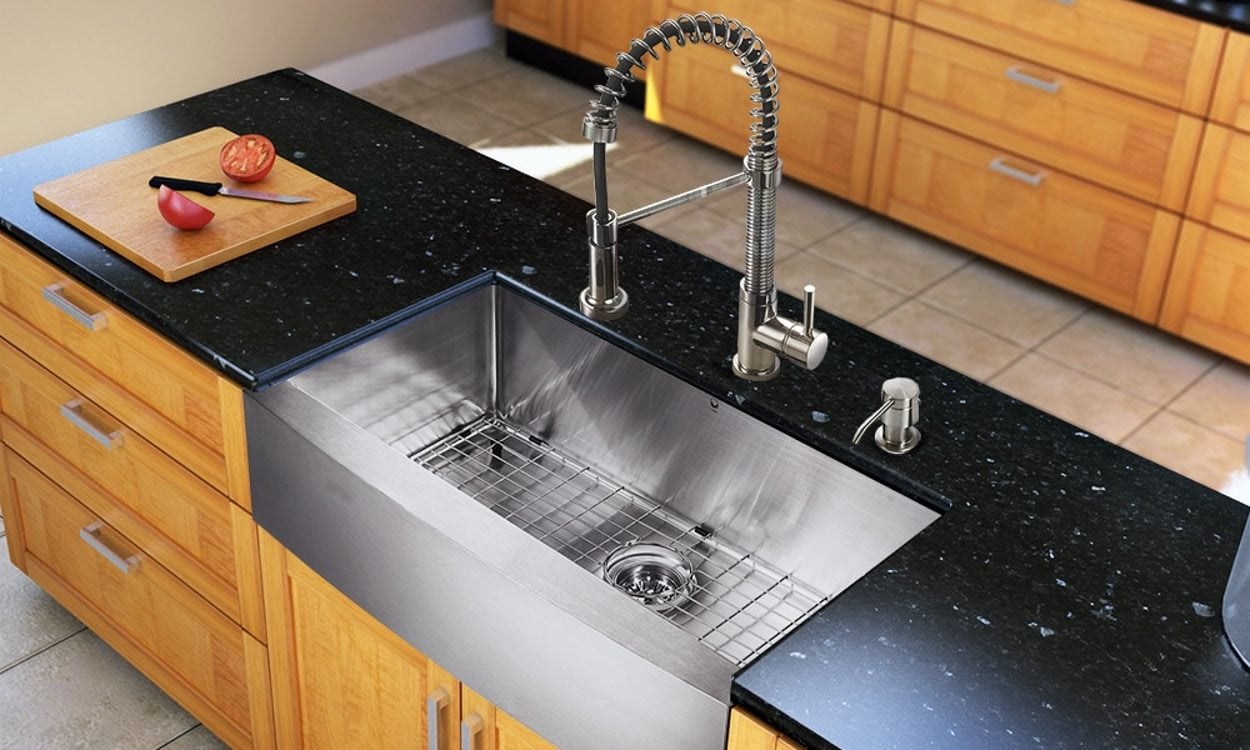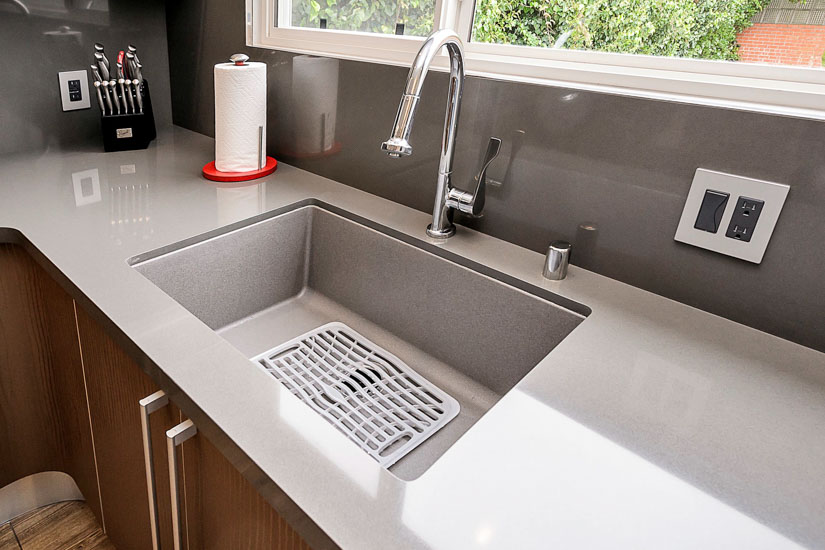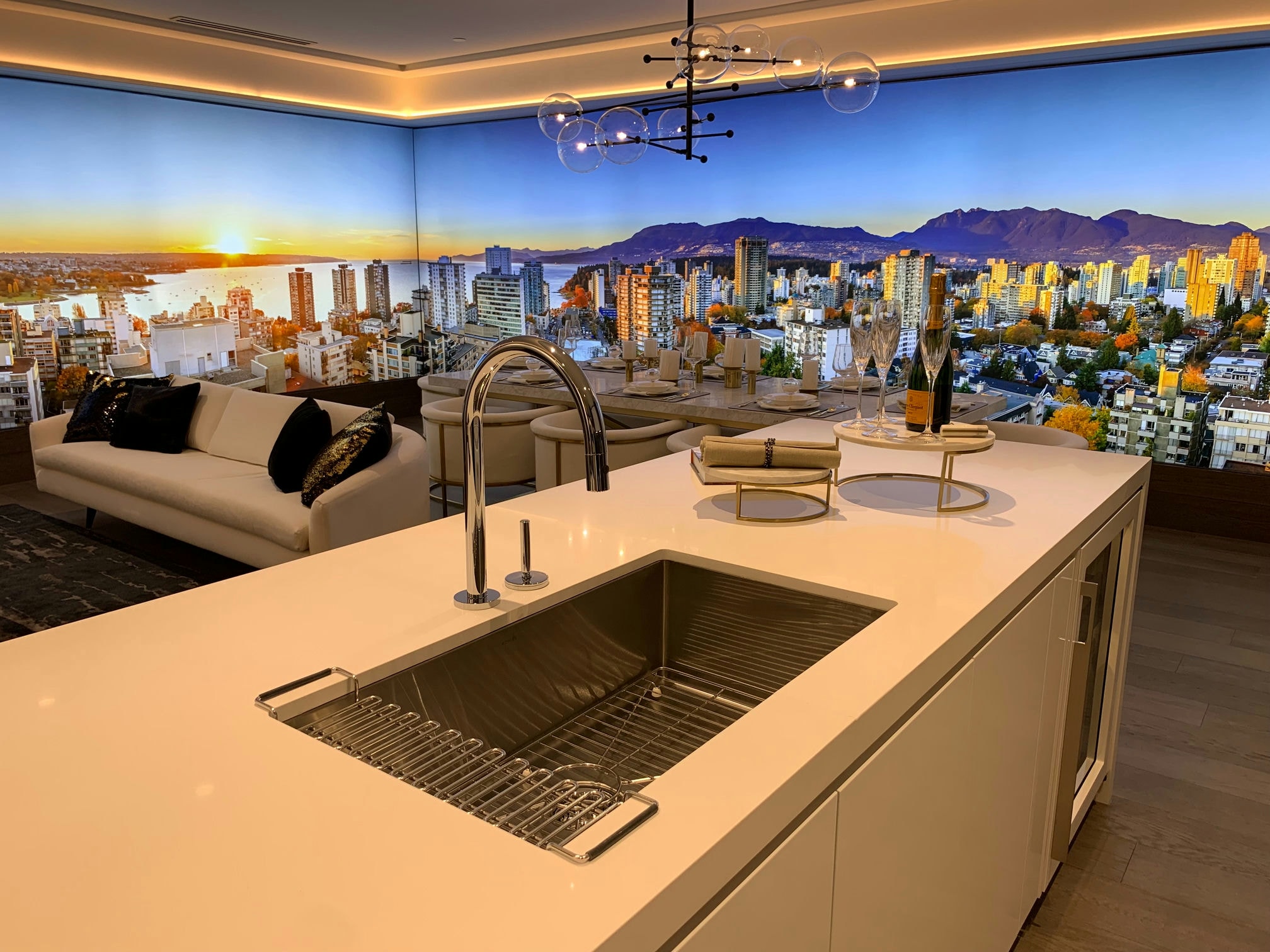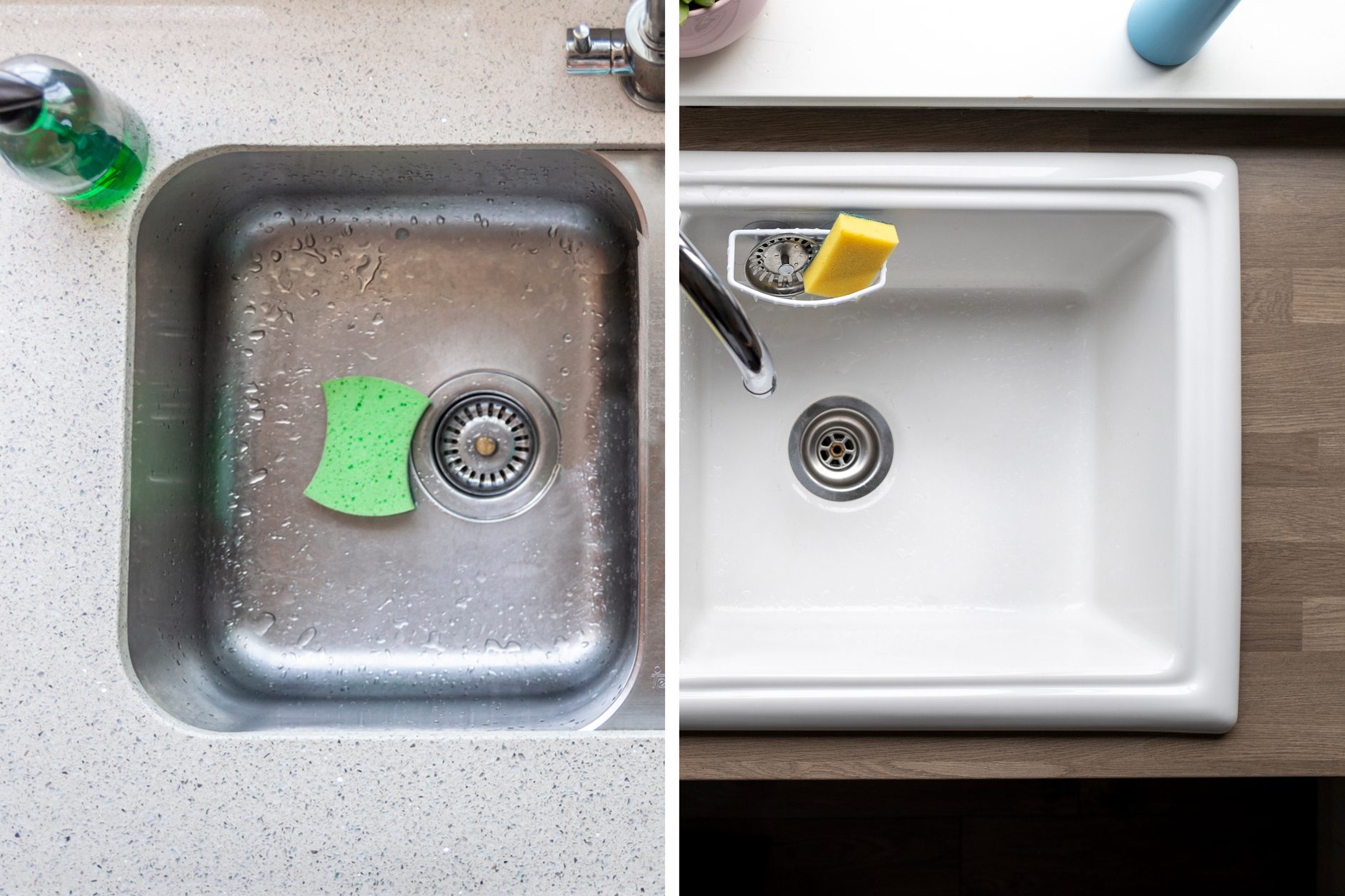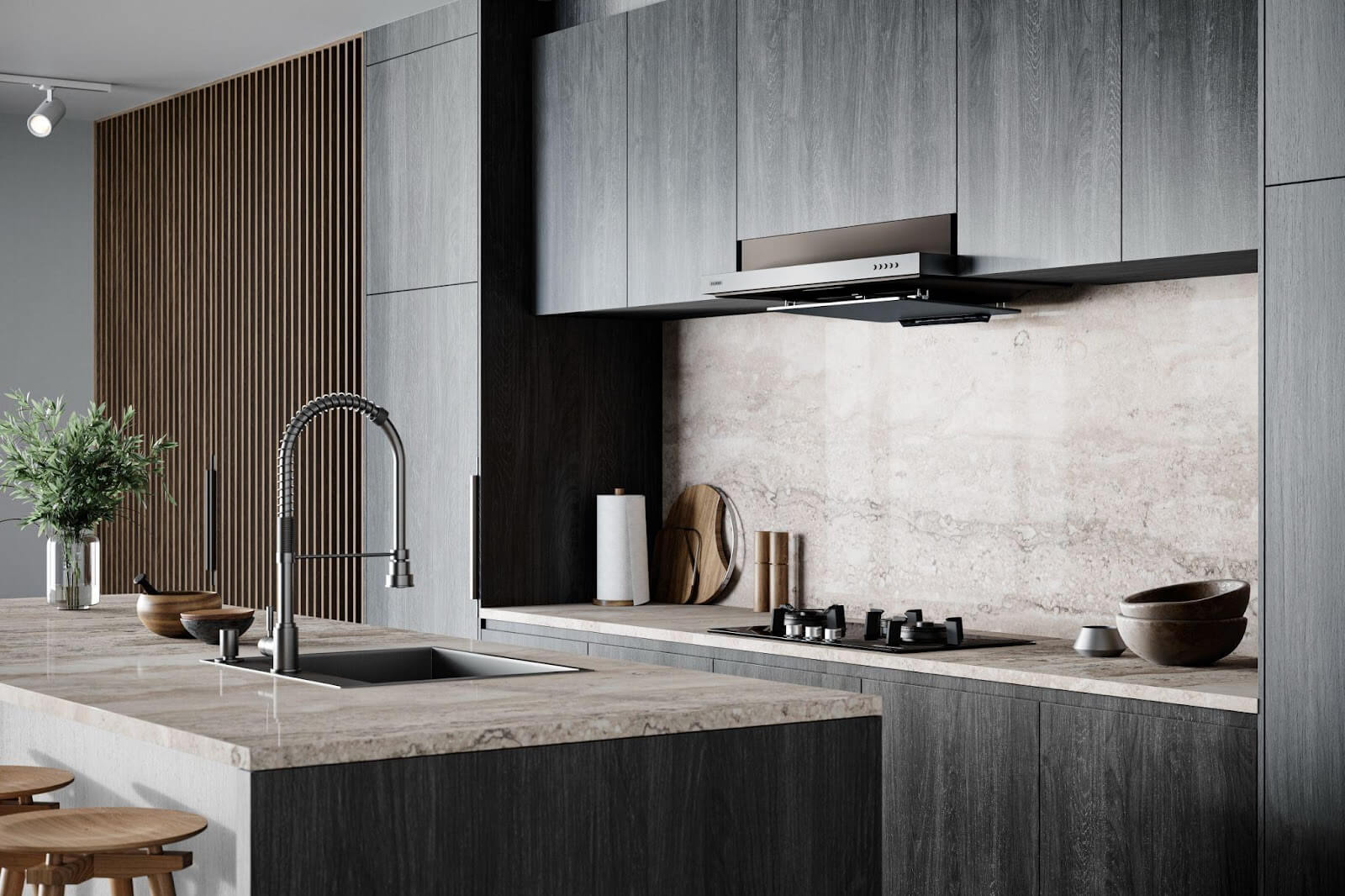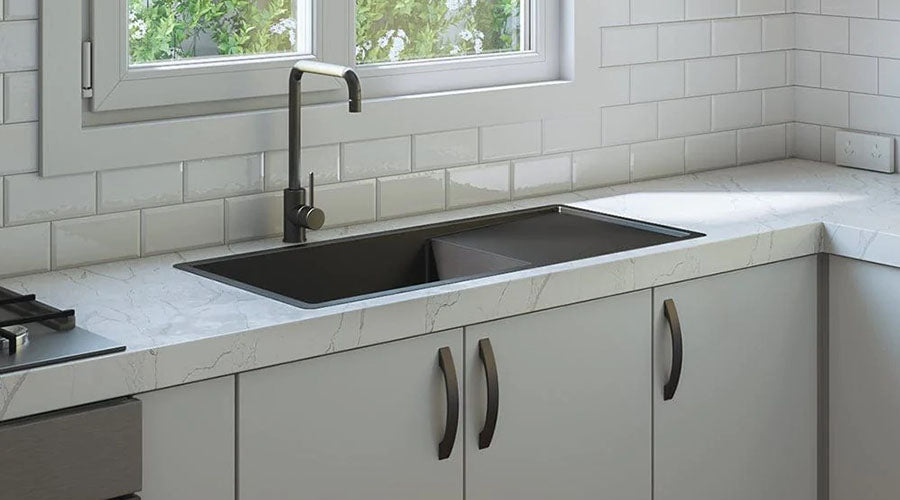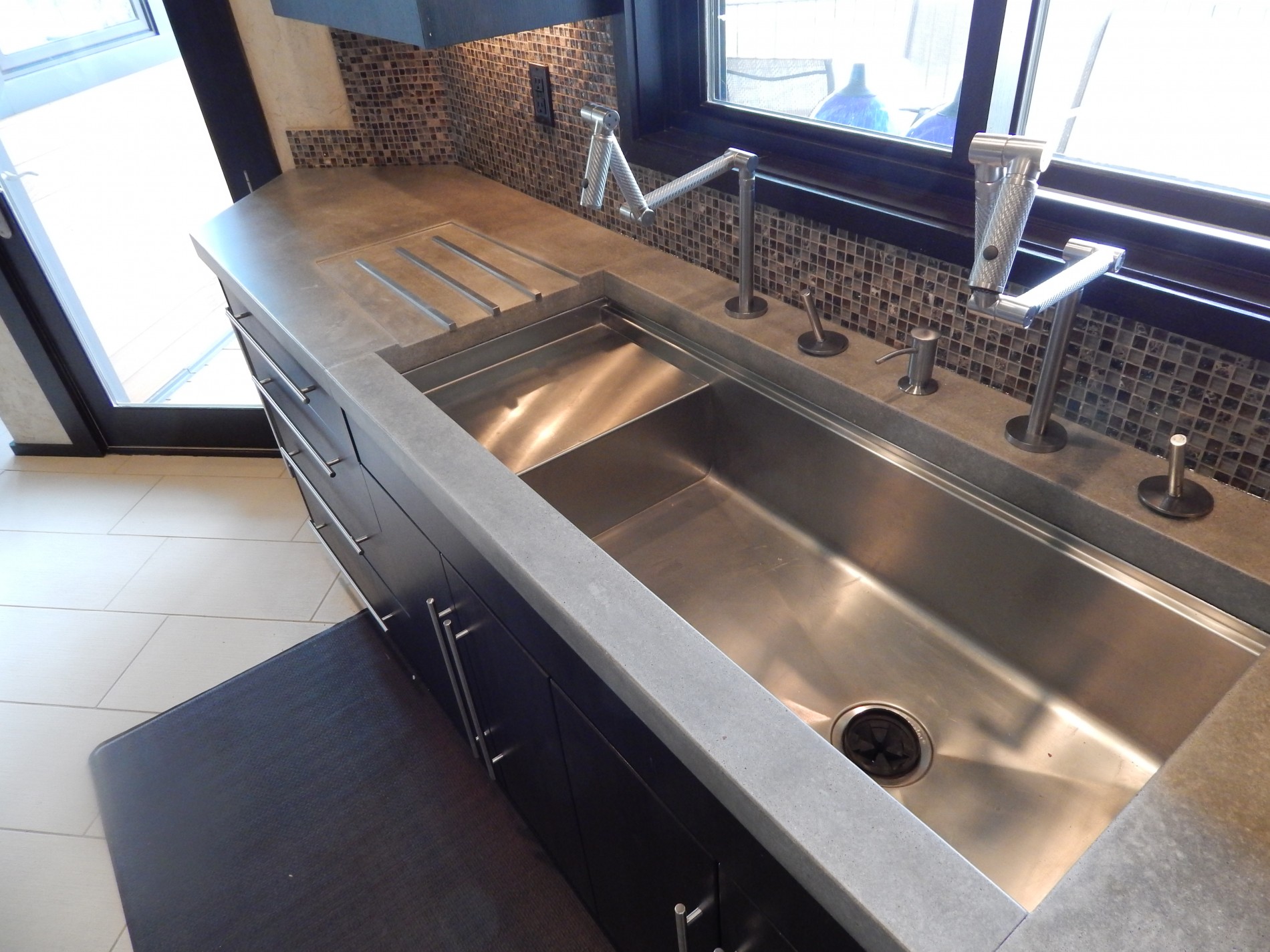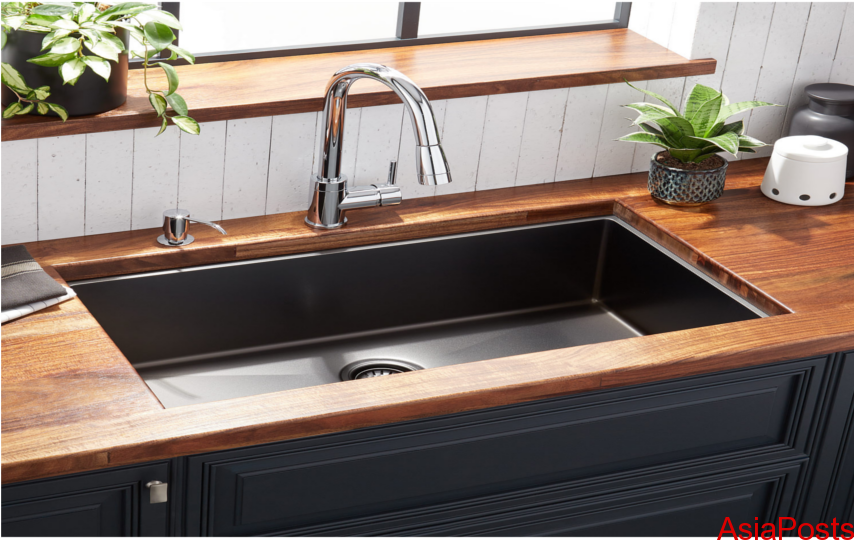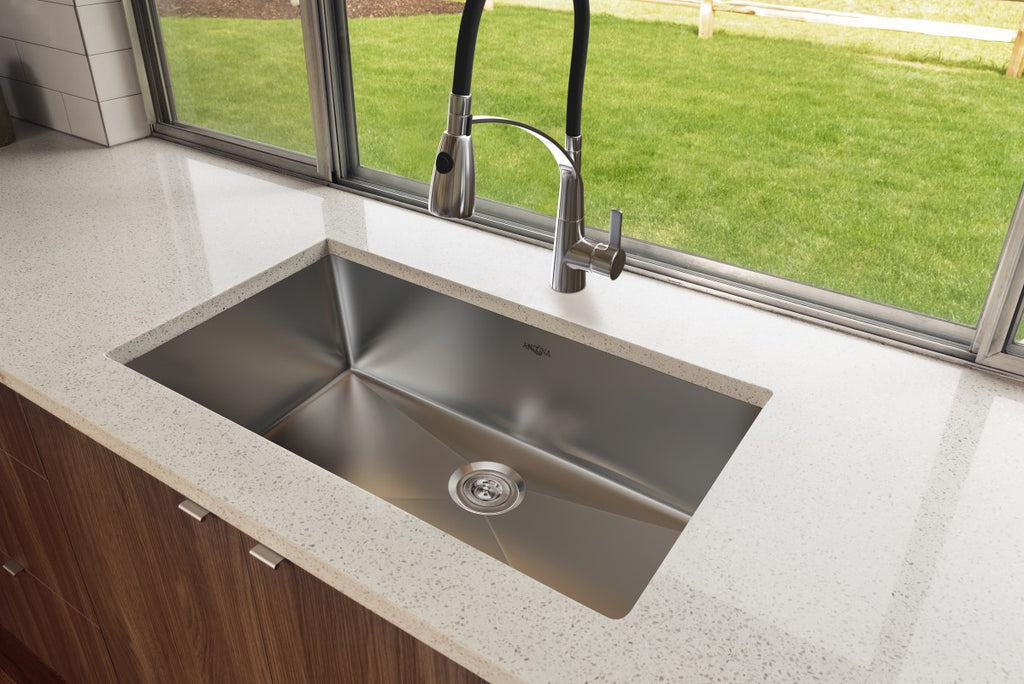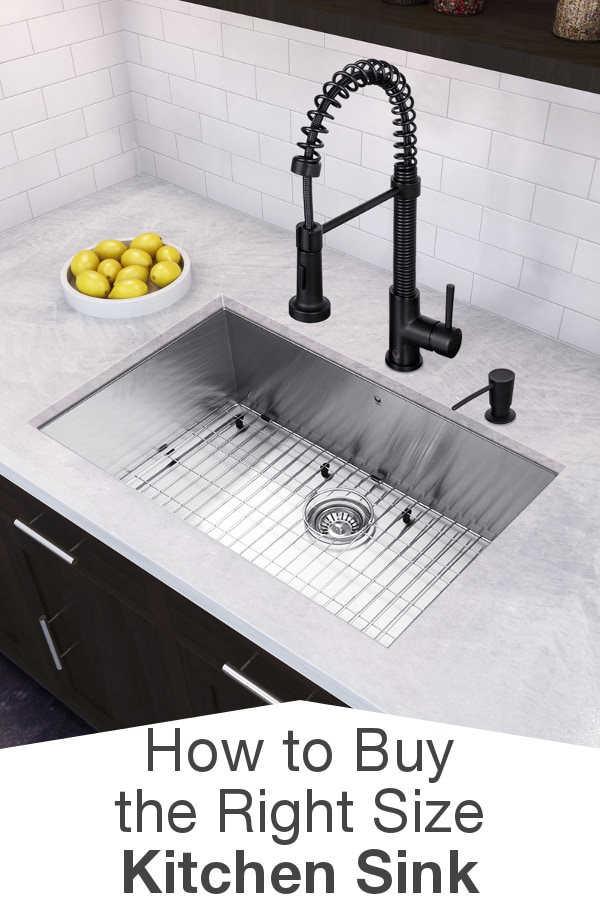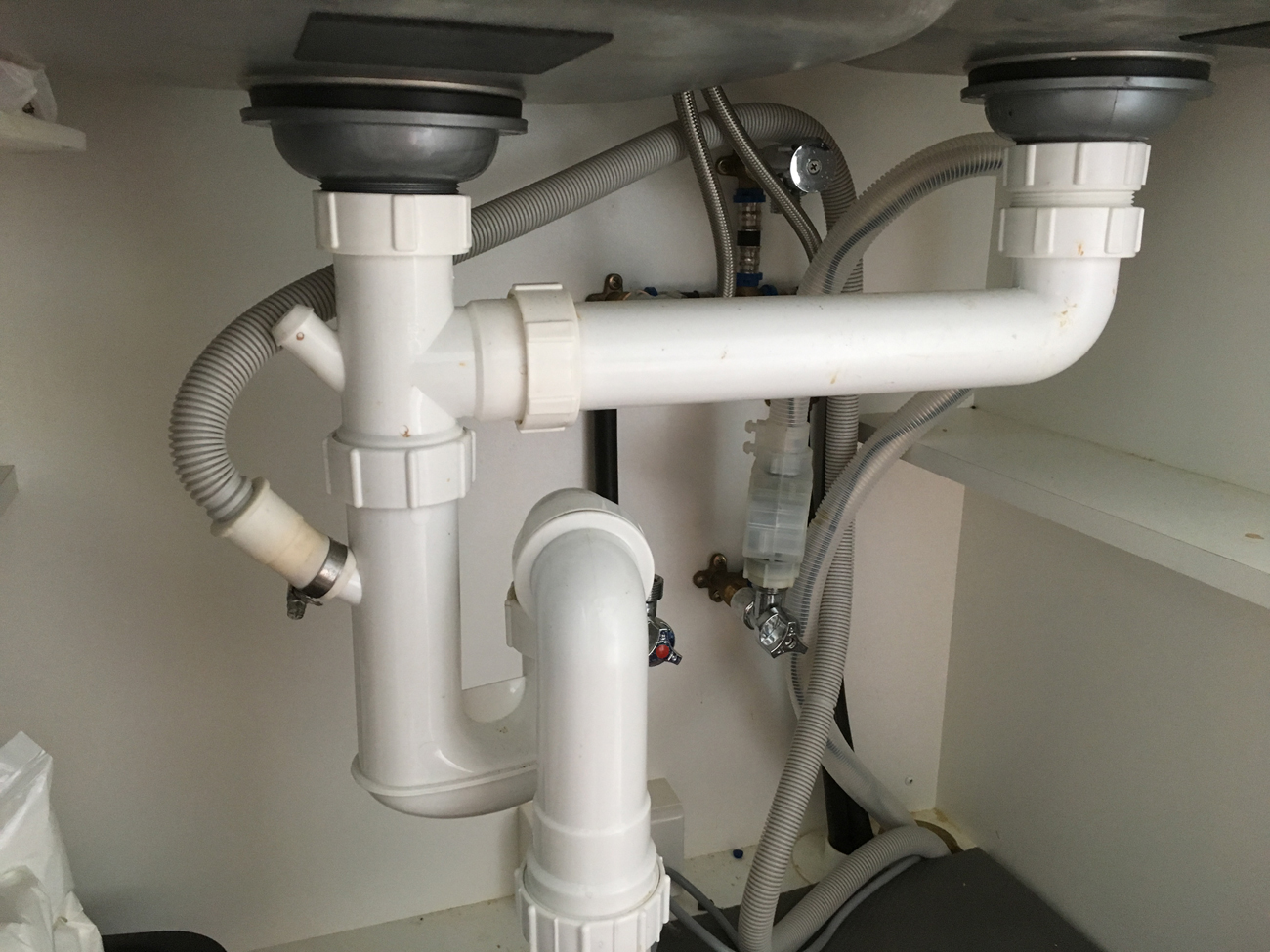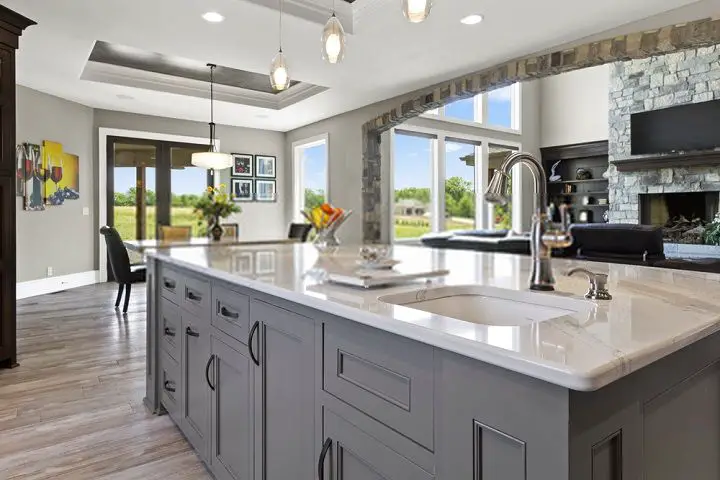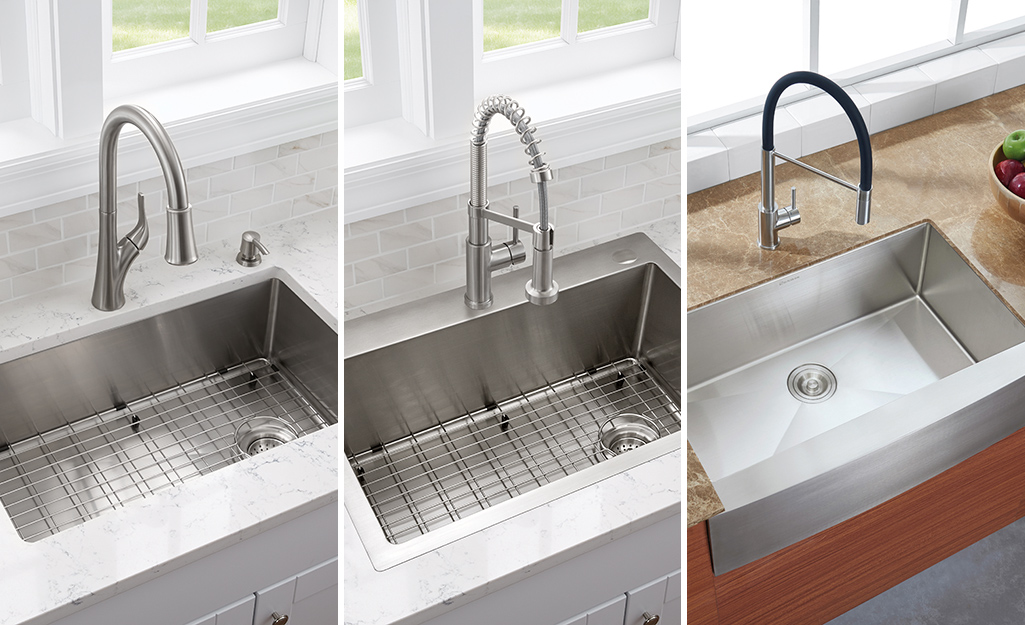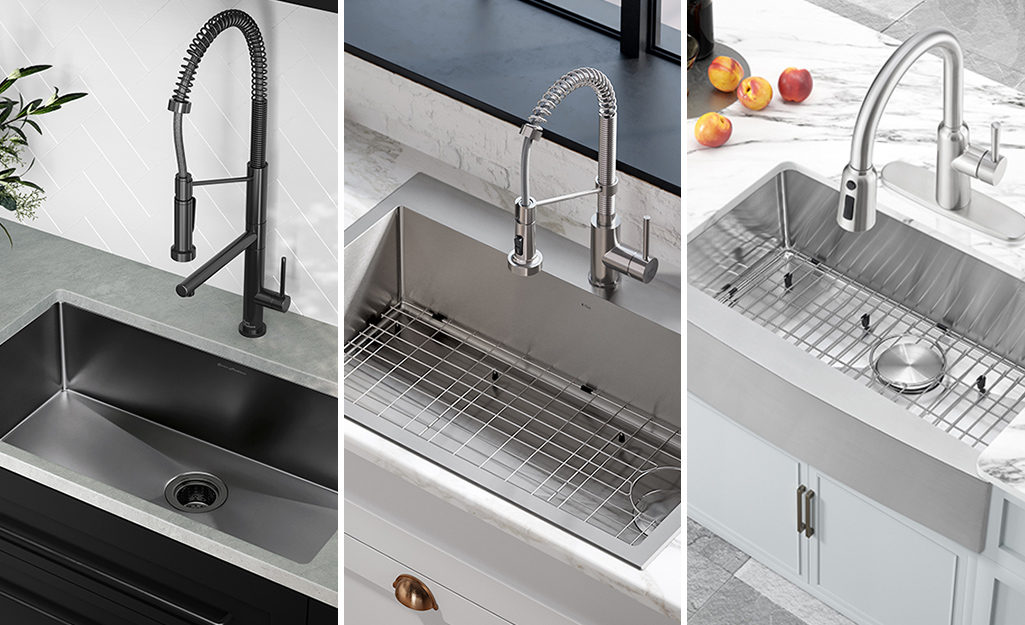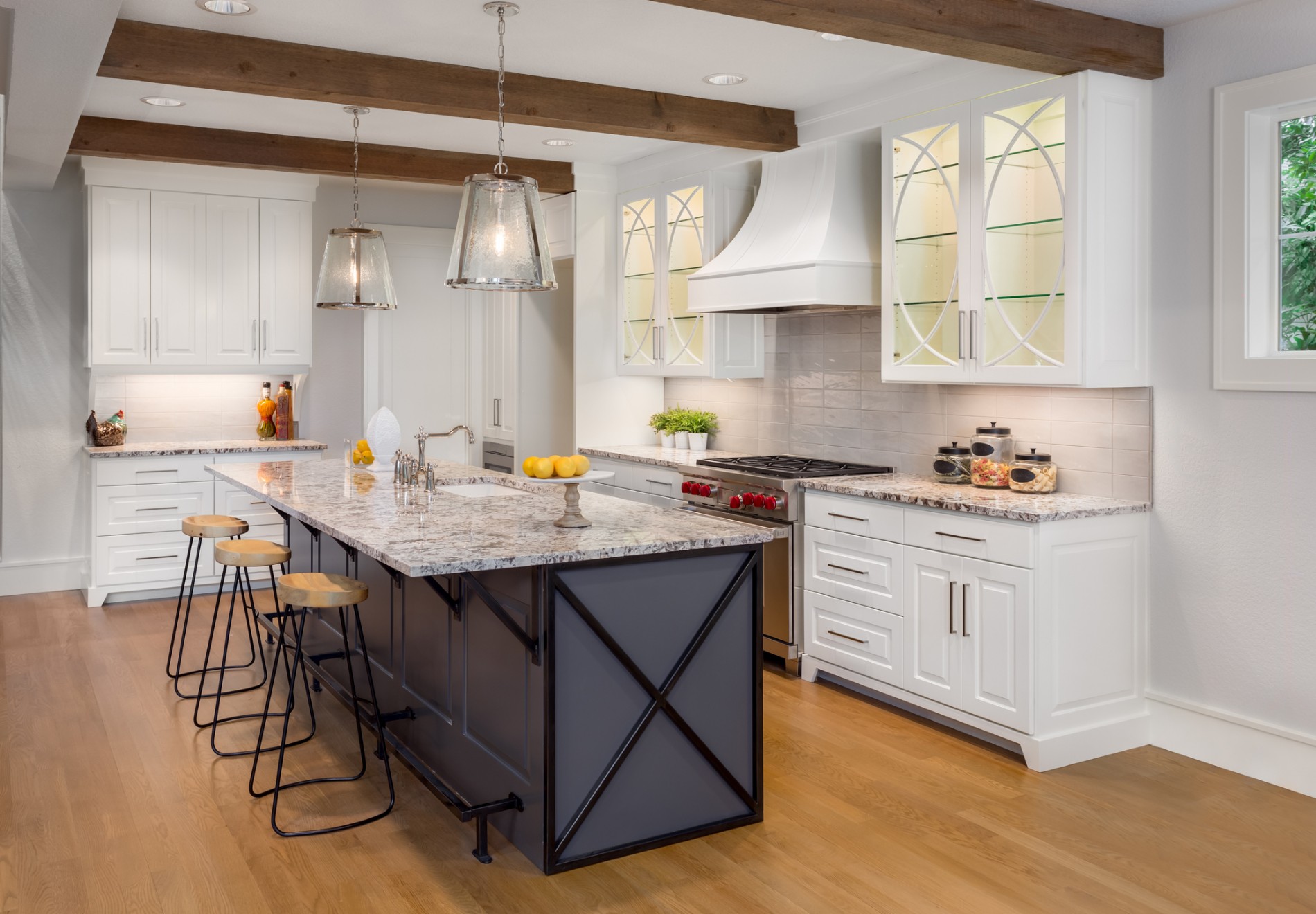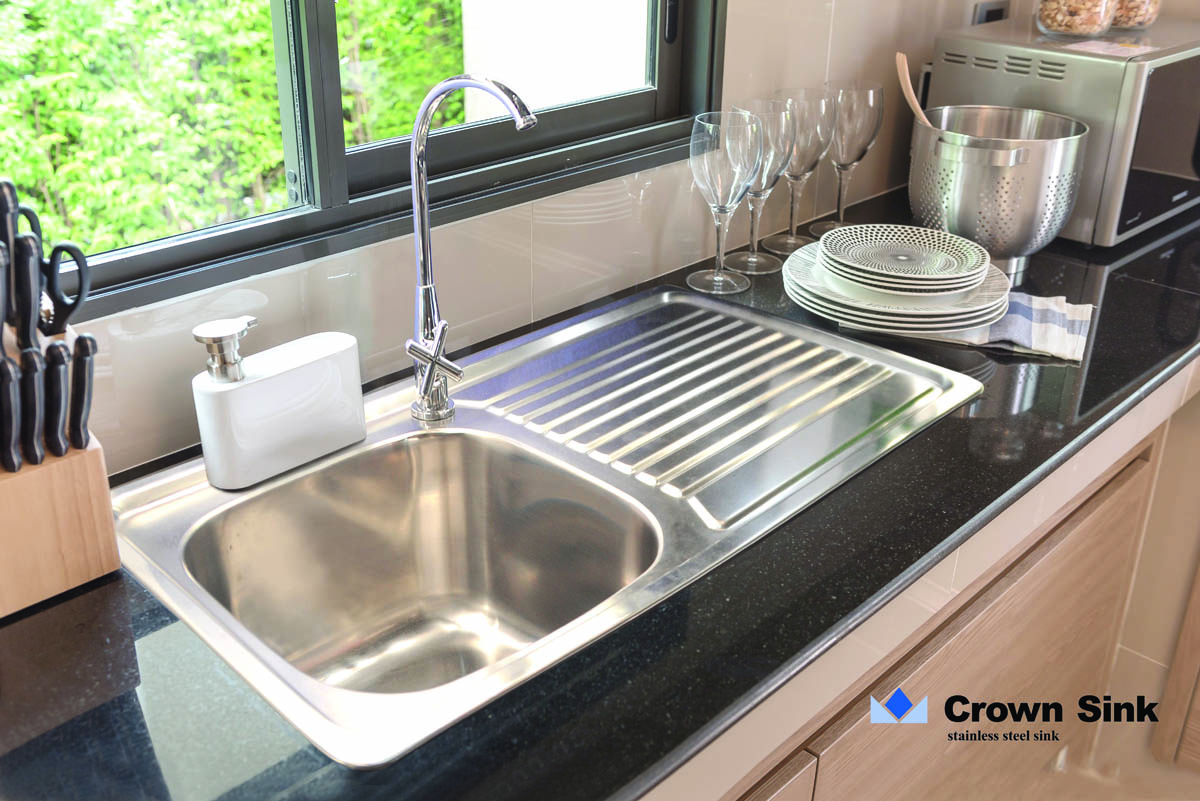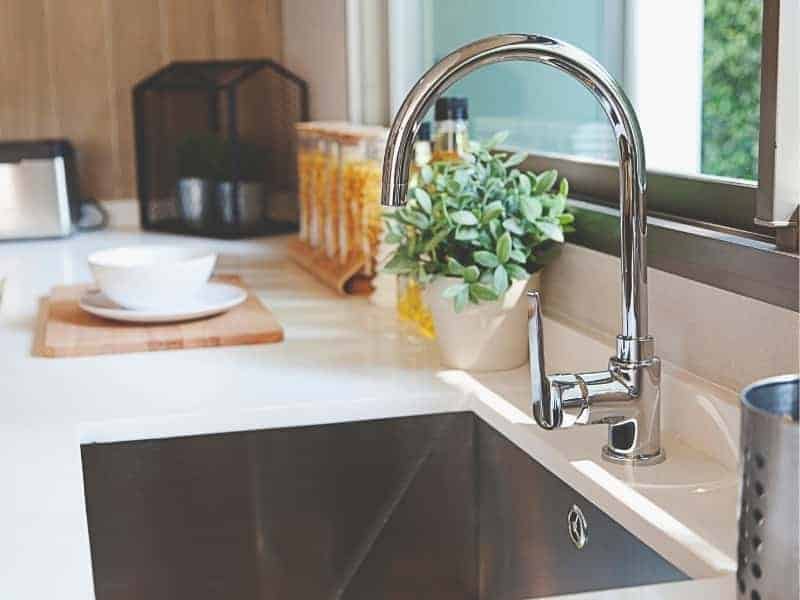When it comes to choosing a kitchen sink, the first thing you need to consider is the type of sink you want. There are several types of kitchen sinks available, each with its own unique features and benefits. Topmount sinks, also known as drop-in sinks, are the most common type of kitchen sink. They are installed from above the countertop, with the edges of the sink sitting on top of the counter. These sinks are easy to install and are available in a wide range of sizes and materials. Undermount sinks are installed from below the countertop, giving a seamless and modern look. They are attached to the underside of the countertop, making it easy to clean the countertop without any obstructions. However, they can be more expensive to install and may require professional help. Farmhouse sinks, also known as apron-front sinks, have become increasingly popular in recent years. They have a deep basin and a front-facing panel that extends beyond the edge of the countertop. These sinks add a rustic and charming look to any kitchen, but they do require a specialized cabinet to support their weight. Bar sinks are smaller sinks typically used in wet bars or kitchen islands. They are perfect for rinsing glasses or prepping food while entertaining guests. Bar sinks come in a variety of shapes and sizes, making them a versatile option for any kitchen.1. Types of Kitchen Sinks
The material of your kitchen sink is just as important as the type. The material you choose will not only determine the look and feel of your sink but also its durability and maintenance requirements. Stainless steel is the most common material for kitchen sinks due to its affordability, durability, and versatility. It is resistant to stains, scratches, and heat, making it a practical choice for any kitchen. Granite composite sinks are made from a mixture of granite stone dust and acrylic resin. They have a modern and sleek look and are highly durable and resistant to scratches and stains. Cast iron sinks have a classic and elegant look, making them a popular choice for traditional kitchens. They are durable and can withstand high temperatures, but they are prone to chipping and require regular maintenance. Fireclay sinks are made from a combination of clay and glaze that is heated at high temperatures. They have a smooth and glossy finish and are highly durable and resistant to stains and scratches.2. Materials for Kitchen Sinks
The size and configuration of your kitchen sink will depend on your specific needs and the layout of your kitchen. When choosing a sink size, consider the space you have available, the amount of counter space you need, and the size of your household. Single-bowl sinks are the most common and are perfect for smaller kitchens or single-person households. They offer a large, deep basin for washing larger items but can be limiting when it comes to multitasking. Double-bowl sinks have two separate basins, allowing you to use one side for washing and the other for rinsing or drying. They are ideal for larger households or for those who frequently entertain and need more workspace in the kitchen. Triple-bowl sinks have three separate basins, providing even more versatility and workspace. They are perfect for those who do a lot of cooking and need multiple areas for food prep and clean-up.3. Size and Configuration Options for Kitchen Sinks
The style of your kitchen sink can significantly impact the overall look and feel of your kitchen. There are various styles to choose from, and the one you choose should complement the rest of your kitchen's design. Traditional kitchen sinks have a classic and timeless look, with a deep basin and clean lines. They are perfect for traditional or farmhouse-style kitchens. Modern kitchen sinks have a sleek and minimalist design, with sharp edges and a simple, functional look. They are ideal for contemporary kitchens and add a touch of sophistication. Rustic kitchen sinks have a charming and cozy feel, with a textured or weathered finish. They are perfect for adding a touch of warmth and character to any kitchen. Industrial kitchen sinks have a utilitarian and industrial look, with a focus on functionality rather than aesthetics. They are perfect for modern and industrial-style kitchens.4. Choosing the Right Style for Your Kitchen Sink
When choosing between an undermount or topmount kitchen sink, there are a few things to consider. Undermount sinks offer a seamless and clean look, as they are installed below the countertop. However, they can be more expensive to install and may require professional help. Topmount sinks are easier to install and are a more budget-friendly option. They are also easier to replace in the future if you decide to change your sink. However, they may not offer the same sleek and modern look as undermount sinks.5. Considerations for Undermount vs. Topmount Kitchen Sinks
When shopping for a kitchen sink, there are a few key features to look for to ensure you get the best value for your money. Number of faucet holes: Consider the type of faucet you want and make sure the sink has enough holes to accommodate it. Drain placement: The placement of the drain can affect the functionality of your sink. Make sure it is in a convenient location for your needs. Noise reduction: Some sinks come with sound-absorbing pads or coatings to reduce noise when using the sink. Accessories: Look for sinks that come with accessories such as cutting boards, colanders, or drying racks to maximize the functionality of your sink.6. Features to Look for in a Kitchen Sink
Kitchen sinks can range in price from a few hundred dollars to over a thousand. If you are on a budget, there are still plenty of affordable options that offer both style and functionality. Stainless steel sinks are typically the most budget-friendly option, with prices starting at around $100. They are durable and versatile, making them an excellent choice for any kitchen. Acrylic sinks are also a budget-friendly option, with prices starting at around $200. They are lightweight, easy to install, and come in a variety of colors and styles. Composite granite sinks are another affordable option, with prices starting at around $300. They offer a modern and stylish look and are highly durable and resistant to stains and scratches.7. Budget-Friendly Kitchen Sink Options
Before purchasing a new kitchen sink, it is crucial to measure the space accurately to ensure a proper fit. Here are the steps to follow when measuring for a new sink: 1. Measure the width and depth of the sink base cabinet. 2. Take note of the position of the existing drain and water supply lines. 3. Measure the distance from the backsplash to the center of the drain and water supply lines. 4. Measure the distance between the center of the sink's drain and the edge of the sink. 5. Take note of any additional features, such as a garbage disposal or soap dispenser, that may affect the sink's installation.8. How to Measure for a New Kitchen Sink
To keep your kitchen sink looking its best, it is essential to clean and maintain it regularly. Here are a few tips to help you keep your sink in top condition: Use gentle cleaners: Avoid harsh chemicals and abrasive cleaners that can damage the sink's surface. Instead, use mild soap and warm water to clean your sink. Avoid leaving standing water: Standing water can cause mineral build-up and stains on your sink. Make sure to dry your sink after use to prevent this. Use a soft sponge or cloth: Scrubbing your sink with a harsh sponge or cloth can cause scratches and damage the sink's finish. Always use a soft sponge or cloth when cleaning your sink. Remove stains promptly: If you notice any stains on your sink, address them immediately to prevent them from setting in and becoming difficult to remove.9. Tips for Maintaining and Cleaning Your Kitchen Sink
Choosing the right kitchen sink is an important decision that can significantly impact the functionality and style of your kitchen. Consider your needs, budget, and kitchen design when making your decision. For a budget-friendly and versatile option, stainless steel sinks are an excellent choice. If you want a more modern and sleek look, consider a granite composite or fireclay sink. And for a touch of charm and character, farmhouse sinks are the way to go. Don't forget to take accurate measurements and consider the type, size, and configuration of your sink to ensure a perfect fit. And finally, make sure to properly maintain and clean your sink to keep it looking its best for years to come.10. Choosing a Kitchen Sink: Final Thoughts and Recommendations
The Importance of Material
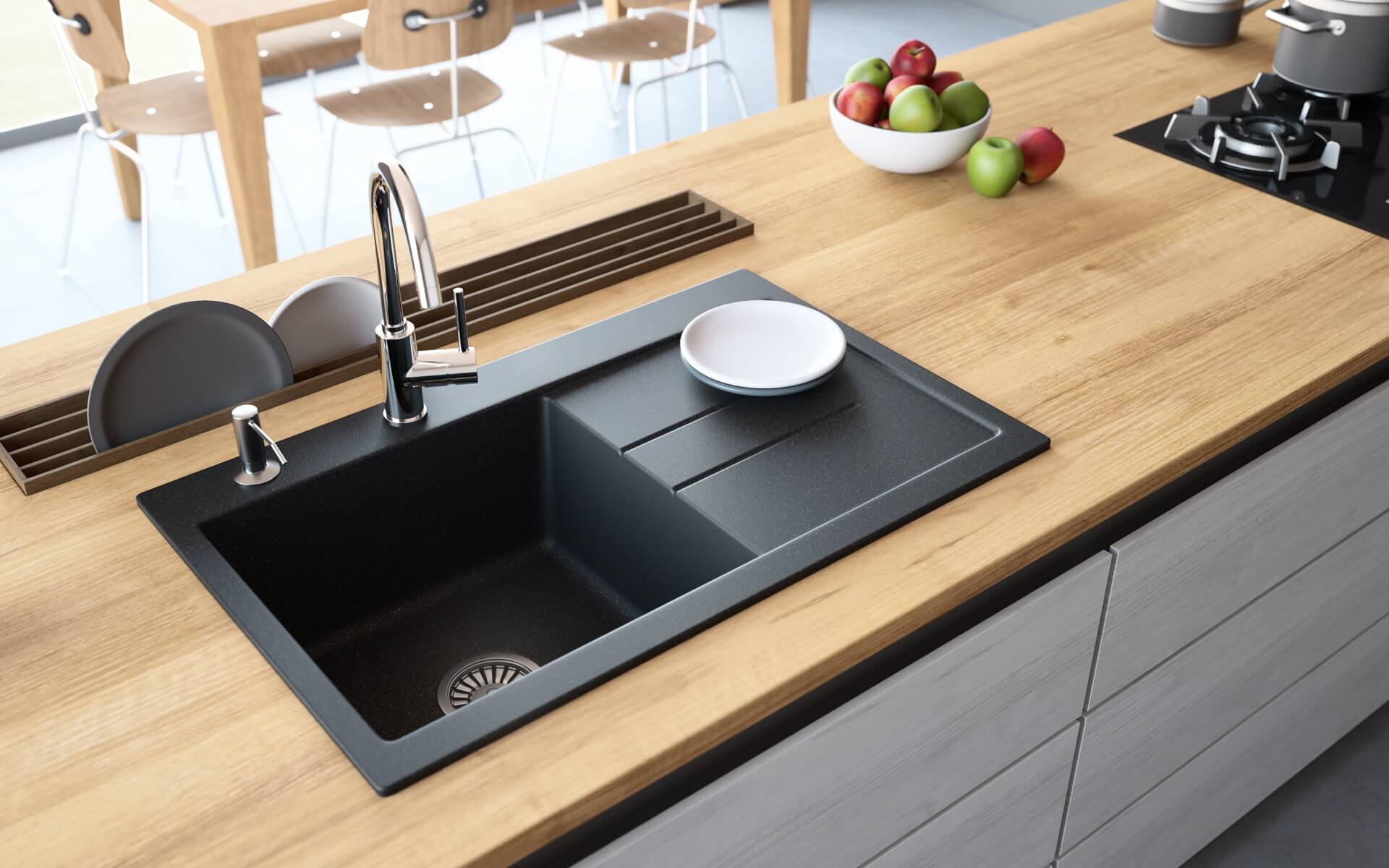
Choosing the Right Material for Your Kitchen Sink
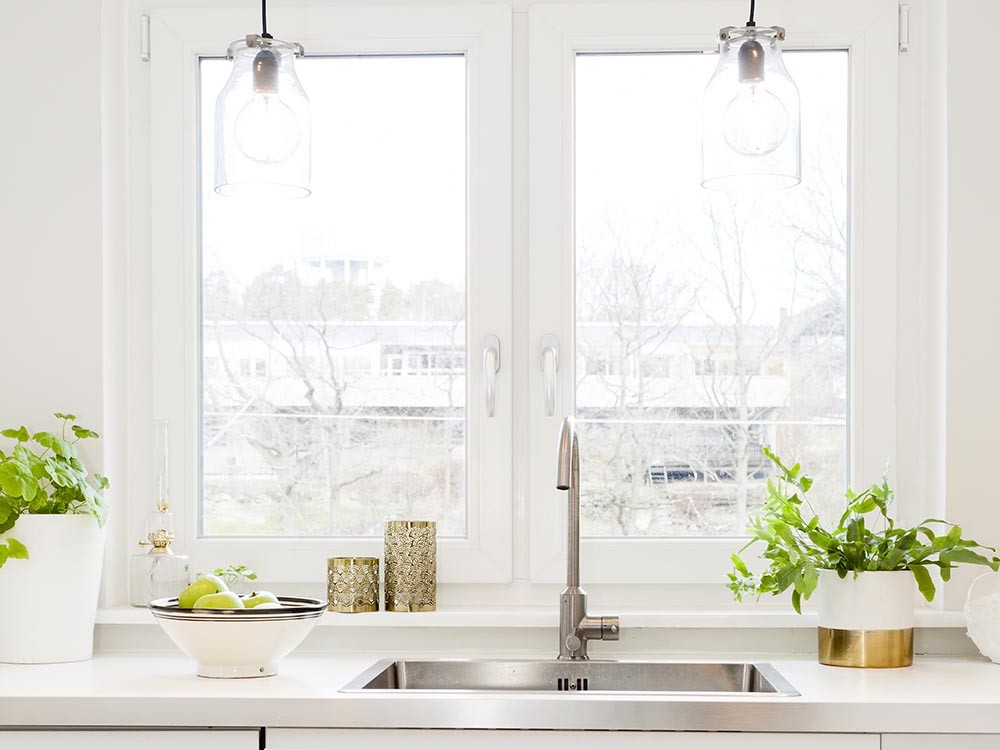 When it comes to
choosing a kitchen sink
, one of the most important factors to consider is the material. The material of your sink not only impacts the overall design of your kitchen, but also its functionality and durability. With so many options available, it can be overwhelming to determine which material is best for your needs. That's why we've put together a guide to help you make an informed decision.
Stainless steel
sinks are a popular choice due to their durability and affordability. They are resistant to stains, heat, and corrosion, making them a practical option for busy kitchens.
Granite composite
sinks, on the other hand, offer a more modern and sleek look. They are also highly durable and resistant to scratches and stains. However, they can be more expensive than stainless steel.
If you're looking for a more unique and luxurious option,
cast iron
sinks may be the way to go. They are made from a combination of iron and enamel, giving them a smooth and glossy finish. However, they are heavy and may require additional support from your cabinetry.
Copper
sinks are another luxurious option that adds a warm and rustic touch to your kitchen. They are naturally antimicrobial and highly resistant to scratches and stains, but they do require regular maintenance to prevent patina.
For a more eco-friendly option,
fireclay
sinks are made from a mixture of clay and glaze, making them highly durable and resistant to heat and stains. They are also easy to clean and maintain. Another eco-friendly option is
bamboo
sinks, which are made from a renewable resource. They are also durable and resistant to stains and scratches, but they may require more maintenance to prevent water damage.
In conclusion, when choosing a kitchen sink, the material is a crucial aspect to consider. It not only impacts the design and style of your kitchen, but also its functionality and durability. Consider your budget, lifestyle, and design preferences to determine which material is the best fit for your needs. With the right material, your kitchen sink will not only be a functional element, but also a beautiful and long-lasting addition to your home.
When it comes to
choosing a kitchen sink
, one of the most important factors to consider is the material. The material of your sink not only impacts the overall design of your kitchen, but also its functionality and durability. With so many options available, it can be overwhelming to determine which material is best for your needs. That's why we've put together a guide to help you make an informed decision.
Stainless steel
sinks are a popular choice due to their durability and affordability. They are resistant to stains, heat, and corrosion, making them a practical option for busy kitchens.
Granite composite
sinks, on the other hand, offer a more modern and sleek look. They are also highly durable and resistant to scratches and stains. However, they can be more expensive than stainless steel.
If you're looking for a more unique and luxurious option,
cast iron
sinks may be the way to go. They are made from a combination of iron and enamel, giving them a smooth and glossy finish. However, they are heavy and may require additional support from your cabinetry.
Copper
sinks are another luxurious option that adds a warm and rustic touch to your kitchen. They are naturally antimicrobial and highly resistant to scratches and stains, but they do require regular maintenance to prevent patina.
For a more eco-friendly option,
fireclay
sinks are made from a mixture of clay and glaze, making them highly durable and resistant to heat and stains. They are also easy to clean and maintain. Another eco-friendly option is
bamboo
sinks, which are made from a renewable resource. They are also durable and resistant to stains and scratches, but they may require more maintenance to prevent water damage.
In conclusion, when choosing a kitchen sink, the material is a crucial aspect to consider. It not only impacts the design and style of your kitchen, but also its functionality and durability. Consider your budget, lifestyle, and design preferences to determine which material is the best fit for your needs. With the right material, your kitchen sink will not only be a functional element, but also a beautiful and long-lasting addition to your home.
